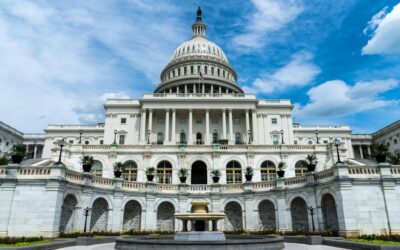President Biden’s proposed infrastructure bill is front and center in Congressional offices, but it is the American Jobs Plan that is getting more attention. This proposed bill from the Biden administration also includes an abundance of funding for infrastructure. Some of the allocations include the following:
- $115 billion to repair and rebuild bridges, highways, and roads.
- $100 billion to expand and improve power lines and incentives to encourage clean energy projects.
- $100 billion for upgrades and construction of new school facilities.
- $100 billion to expand high-speed broadband throughout the U.S.
Both parties have voiced support for an infrastructure bill, but, as drafted, it faces significant opposition. The question is whether or not party leaders can reach a compromise. However, while this controversy plays out, state legislators are enacting laws that will begin the process of infrastructure reform throughout the country. Many states are moving ahead quickly as if there is little hope in sight for assistance from Congress.
Utah

Kentucky
Four legislative bills were signed this month to allocate part of the state’s anticipated funding from the federal American Rescue Plan Act to projects that include construction and repair to school facilities, expansion of broadband, and new infrastructure projects that are related to clean drinking water. Two of the new laws allocate $300 million to broadband deployment to unserved and underserved communities. Reliable, high-speed internet access is considered critical to achieving successes in education, health-care outcomes, and economic development.
More than $200 million has been allocated by two of the other recently signed laws. This funding includes $127 million for school construction and $75 million for renovation costs needed at a number of vocational schools. Another new law authorizes $250 million in in grant funds for crucial upgrades to water and sewer infrastructure. Plans have been announced to lay new water pipelines to ensure clean drinking water and to modernize other parts of the state’s water infrastructure.
New Mexico
The governor of New Mexico has signed numerous bills that provide funding for infrastructure projects. SB 121 authorizes the New Mexico Finance Authority to issue state transportation project bonds for $234.6 million for road projects throughout the state.
SB 84 created a Community Solar Act which allows residents and businesses to develop community solar facilities within service areas of electric utilities and rural electric cooperatives. The bill requires 30 percent of each community solar project to serve low-income residents.
SB 93 creates a central state agency with a mandate to develop and upgrade New Mexico’s broadband network.
HB 285 provides funding of $500 million for other infrastructure projects. Another $170 million was allocated for projects that include $10 million for statewide improvements at correctional and health facilities and $12.5 million for local economic development projects. Legislators authorized funding for other projects including $52 million for tribal projects, $48 million for public safety, $61 million for water and wastewater projects, $49 million for higher education institutions, $34 million for public schools, $53 million for road projects, and more than $8 million for acequias, ditches, and dams.
Massachusetts
A $16 billion Transportation Bond Bill became law in January. This bill authorizes funding for transportation projects that will be launched by the Massachusetts Department of Transportation and the Massachusetts Bay Transportation Authority (MBTA). The legislation includes more than $5.1 billion for modernization of the MBTA, $100 million to improve pavement conditions on state municipal roads, $50 million for street infrastructure. The bill includes $70 million for bridge projects, the expansion of designated bus lanes, and upgrades to transit signals.
Colorado
Legislators recently allocated funding as part of a bipartisan stimulus effort designed to stimulate Colorado’s regional economy. Approximately $20 million was authorized for capital improvements that will have oversight from the Colorado Parks and Wildlife agency. The funding will be used to upgrade and enhance the state’s park infrastructure. Examples of park projects include building new trails, service buildings, campgrounds, and shooting bays.
North Dakota
Funding from the state’s oil and gas tax revenue will be available for infrastructure projects as a result of new legislative laws that take effect on August 1. Approximately $1.4 billion is authorized for flood control, road, and bridge projects. Other funding will be available for park infrastructure projects. One anticipated project includes development of a theme and cultural park in Jamestown. The objective would be to offer attractions associated with Native Americans and the history of North Dakota. The plan includes a museum, children’s area, and an amphitheater for entertainment events.
Ohio
The state’s new transportation budget for 2022-2023 includes various infrastructure projects. Examples include$2.6 billion for roadway improvements, $2.4 billion for local roadways, $74 million for public transit, and $318 million for highway safety projects. Another $116 million was authorized for the Public Works Commission, including $14 million for emergency road-slip repair. Like numerous other states, Ohio legislators approved $8 million for electric vehicle charging stations.
American infrastructure reform has support at all jurisdictional levels of government. The question is whether or not Congress will actually pass a national infrastructure plan. The jury is still out on that important question.
SPI’s newsletters are excellent sources of government procurement information. Subscribe here.






